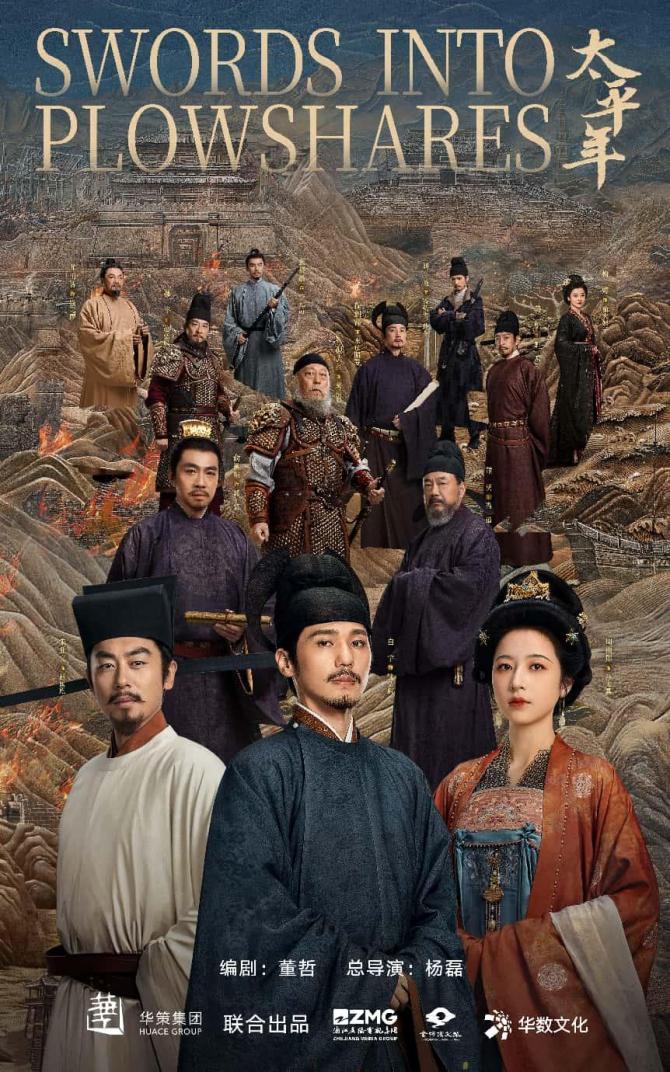
In 2019, screenwriter Lan Xiaoxi read the novel "A Small Room in a Big City", "It is very real, and I can feel the joy, anger, sorrow and joy of every character. The time span is more than ten years, showing the life of ordinary people in the big era. , This is quite attractive to me." She took over the project and set the tone of the story with a "warm realism" style with the main creative team. By the fall of 2022, she typed out the words "End of the whole play" on the computer, and by this time four rounds of seasons had passed. In 2023, the TV series "All the way to the sun" will be broadcast, which has become a recent topic.

"All the way to the sun" poster
The tone of the original story is rather cruel. Almost every character is trapped in the big net of fame and fortune in the city. This kind of description has its authenticity in literary works, but in TV dramas, such characterization and story line, never From a marketing and censorship point of view, it is almost impossible to make it to the small screen. Therefore, the first thing to change in script adaptation is the temperament and tone of the original work. "According to the positioning of 'warm realism', it is necessary to be real and down-to-earth, but also to have room for dream-making, and to balance the relationship between reality and dream-making. We have also made a lot of attempts, overthrowing and starting again," Lan said. Xiaoxi said, "In the end, the occupations and story clues of the main characters were retained, but subversive adjustments were made to the character design, emotion, and structure."
The Paper interviewed Lan Xiaoxi exclusively, and talked about various details and considerations in the creation process of this drama, and also talked about those embarrassing changes in the times and personnel outside of the creation of the drama.
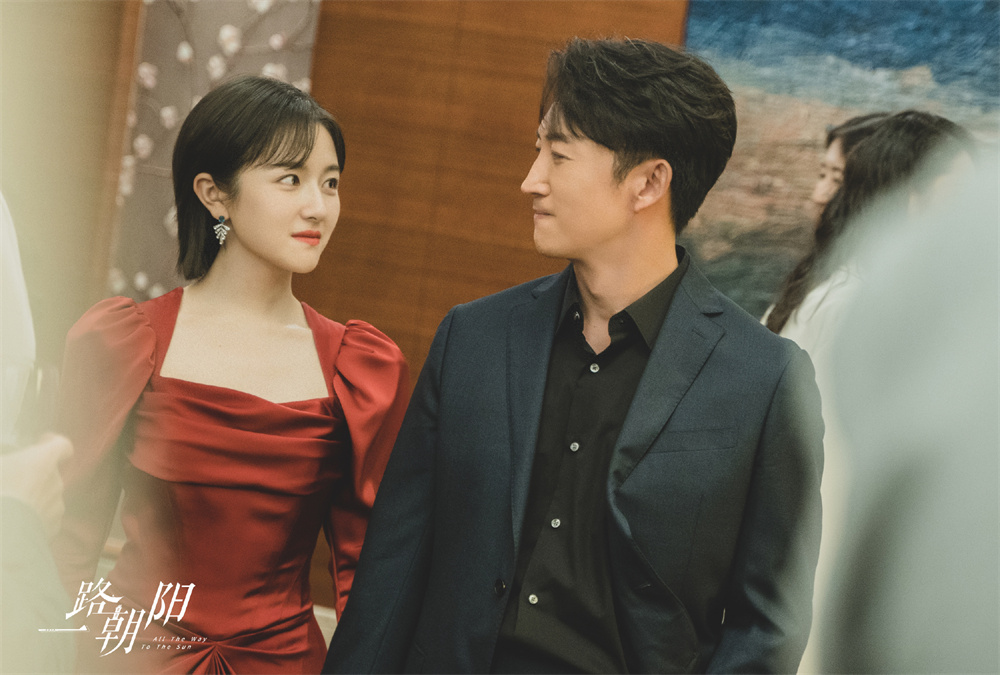
Li Landi as Li Mujia, Wang Yang as Li Guang
【dialogue】
This is a love that is evenly matched
The Paper : The emotional relationship between Li Guang (played by Wang Yang) and Li Mujia (played by Li Randi) received a lot of attention during the broadcast. Are there any specific details you can share about the characters themselves and the handling of the emotional drama?
Lan Xiaoxi : The love between Li Guang and Li Mujia, this love has to be realized, and it has to create a dream. Because this is an urban story with realistic themes after all, it is not a pure idol drama. Then why did Li Mujia fall in love with Li Guang, and why was Li Guang willing to lower his figure step by step for Li Mujia, showing a disturbed and humble attitude in front of love? This degree of consideration is actually quite difficult, and it is constantly weighing in the writing process.
For example, Li Mujia and Li Guang met several times by chance when they first got to know each other. I made a lot of designs to make the encounter unobtrusive to the audience. Finally, it was set that Li Mujia’s phone broke when she went to deliver documents to Mr. Zhao of Northern Real Estate, and then mistakenly thought that Li Guang is the manager of a private restaurant. He asked him to help deliver documents. He laid out such a layer and then showed the intersection of their work. This progressed layer by layer, making the relationship between the two of them continuous and transitional, allowing the audience to see and Believe in the process of them falling in love with each other and how this love was established step by step.
The Paper : There are also doubts on the Internet about the relationship between this group of characters who are quite different in age and class. For example, when Li Mujia proposed to Li Guang, he said that he would give up his property and inheritance, but was willing to bear debts and risks, repeatedly emphasizing the purity of his relationship with Li Guang. In the screenwriter's creative considerations, did Li Mujia have any self-beautification part in this relationship, as some viewers have questioned?
Lan Xiaoxi : In the play, Wu Jianqiu (played by Gao Ye) said from the beginning that Li Guang is an "old fox" and "an old Jianghu". If Li Mujia is just self-beautification and disguise, and she is not sincere, how can Li Guang watch it? Not coming out? How could he love Li Mujia deeply?
When Li Mujia met Li Guang, she realized that she couldn't resist Li Guang's charm, but she also thought "I don't have the ability to maintain this relationship," so she retreated. This "retreat" is not a hard-to-get thing in love, but she feels that she can't hold on and is overstepping her limits, so she simply doesn't want it. This is her sobriety.
But after they really fell in love, in order to have a family with Li Guang, Li Mujia did not need shares, money, or inheritance. This was not her self-beautification, but her courage. This was the same as her rushing into Wu Jianqiu's office and saying, "Give me a month." Time, I don’t want salary or workstation” is the same.
And the Li Guang we want to make is also a person of flesh and blood, not just a glittering "boss". He had ideals, and at the same time he also took on huge pressure for his architectural ideals. From the golden boulevard to the end of the road, it might just happen overnight. When he was in his darkest moment, Li Mujia gave him great comfort in her own way. At that moment, he really fell in love with her. When you truly love someone, you will be humble unconsciously, and the same is true for Li Guang.
Li Guang saw himself in Li Mujia, so this love seemed to be very different in age and experience, but it was evenly matched. This is the feeling we want to achieve when we write a script.
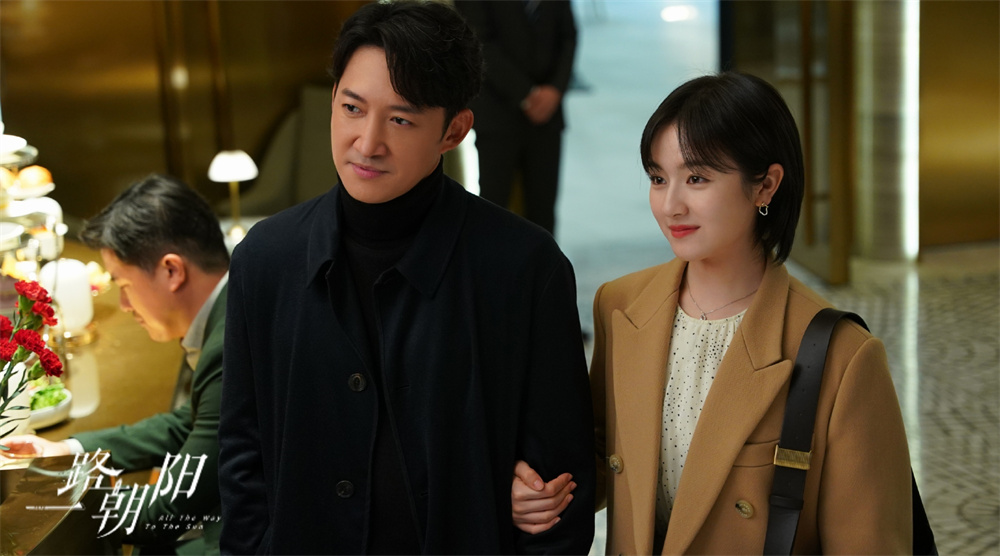
Stills of "All the Way to the Sun"
The Paper : There are three love groups in "A Ride to the Sun". Li Mujia and Li Guang are more romantic imaginaries of the urban elite, Tian Rong (played by Wang Ju) and Li Wanbing (played by Xu Shaoying), Chen Qing (played by Zhang Yishang) and Gao Chang (played by Liu Hengfu), what are your creative thoughts on the relationship and love between these two groups of characters?
Lan Xiaoxi : Tian Rong and Li Wanbing are a very down-to-earth couple. From the beginning of their relationship, the two ate at roadside stalls, slept in bunk beds, took on huge mortgages, and lived frugally. But their relationship is special. good. But after the two got married, they encountered various problems. Tian Rong wanted to settle down after getting married, but Li Wanbing felt that his wife was better than him and wanted to prove himself, so he held on to the house in a unit and refused to let go. The relationship between the two people has also entered a state of tension because of this huge debt. In their relationship and life, success is also a house, and failure is also a house.
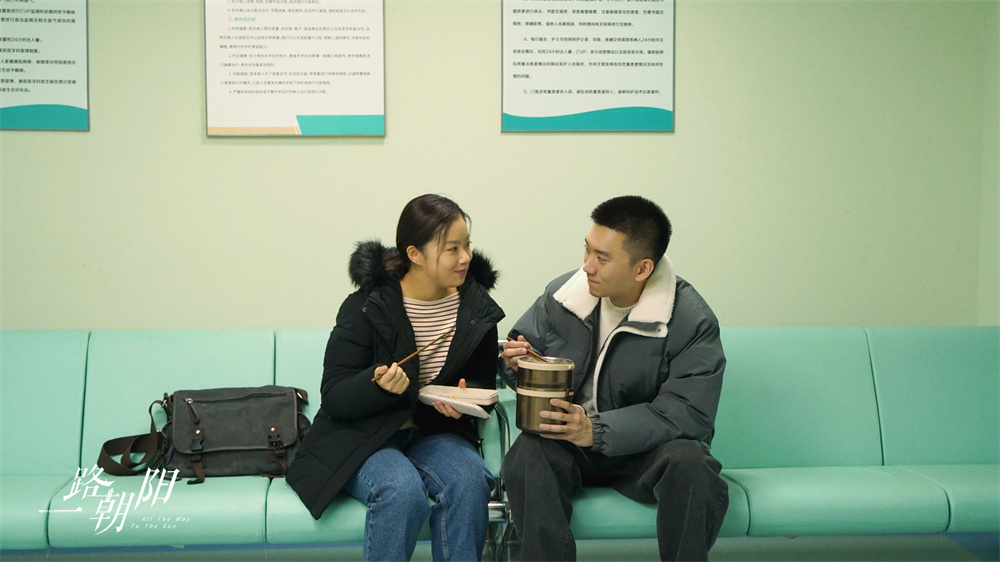
Wang Ju as Tian Rong, Xu Shaoying as Li Wanbing
Chen Qing and Gao Chang are intellectuals who have returned from overseas. They returned to Beijing to start a business with idealism. However, after their ideals came to fruition, especially after having children, Chen Qing believed that ideals needed a house as a carrier. The house is the "shell" of the home, but Gao Chang started his own business and hoped to go to a broader place instead of being stuck in one city or one house. After several in and outs and various discussions, their relationship finally reached an agreement and the family went to Yinchuan. It is a relatively idealized state.
Write about the common things in human nature. Only by being truthful can you touch people's hearts.
The Paper : Several pairs of characters in the play have a warm and uplifting ending, but the difficulties faced by the characters in the play may be common difficulties faced by our generation, such as the difficulty of drifting to the north, being unable to afford a house, and the failure of starting a business. As a screenwriter, is it difficult to answer these common dilemmas and find an answer?
Lan Xiaoxi : I also tried this while writing the script. For example, I had Gao Chang and Chen Qing keep looking at houses. Although the houses in the school district were not satisfactory, they were obsessed with this matter. I think the writing is very awkward. This matter is endless and cannot be solved. Although the dramatic conflicts caused by it may be interesting, I feel that this kind of writing direction is always "kill but not bury". That's not what we want. We still hope to think of a new possibility and a new direction for these characters to break through based on the difficult problems faced by these characters. We would like to discuss with the audience whether sometimes we can change our thinking and live on a different track, instead of sticking to a certain one-sided definition of success and happiness.
The Paper : Tian Rong and Li Mujia are two girls who support each other in the city. Their friendship is very touching. Are there any real-life experiences or observations about the relationship between this group of characters?
Lan Xiaoxi : There are so many. I am a person who believes in friendship very much. For example, in the play, I helped my friends move, scratched my friends, and borrowed my friends’ clothes and bags for interviews. These were all things that happened between me and my friends, so I wrote them. Sometimes, many real experiences come at your fingertips.
Tian Rong’s target was a friend of mine. She bought a house after graduation. In order to save money, she decorated and painted the walls by herself. At that time, she was moving the bed frame upstairs alone. In order to protect the bed frame, she almost fell, and the aunt passing by said Said: Girl, pay attention, don't fall. She said: I have medical insurance but not a bed. I want to protect this bed. She has Tian Rong's energy in her, she enjoys hardships, and she is positive and sunny. I am writing about Tian Rong after her.
It took a long time to write this play. I used to tell my friends when I was having lunch that I wrote a play today and I really liked it.
One of my friends has a personality very similar to that of Li Mujia, and she has given me a lot of inspiration: she is principled, yet very humble, approachable, and has a kind of gentle strength. In February this year, she was diagnosed with a serious illness. The friend who protected the bed as I mentioned earlier stayed with her almost all the time in the hospital. We were there every time her condition recurred, but we couldn't hold her back. She donated her cornea when she passed away. We believe that her eyes are still looking at us in this world.
Every time I watch this show, I cry when I see the passage where I once talked to her. When I was writing it, I told her that when this drama is aired, you must take your whole family to watch it. But now that my good friend is gone, she has become an angel.

Stills of "All the Way to the Sun"
The Paper : When I watched this show, because of its time span, I felt a sense of sadness caused by personnel changes. This person left, that person arrived, things that I thought would be eternal changed, and so on. Among them, the clue of ten years of changes in Beijing's property market connects this kind of personnel changes.
Lan Xiaoxi : In this project, we have done a lot of data collection in this regard. Our story begins in 2007, from the real estate market news in Beijing at that time, to how much each house in each community costs, and then how much is the price difference between new houses and second-hand houses in the same location, how the sales lady at the time promoted it, and how the intermediary worked To describe second-hand houses, you need to find information.
For example, in the play, Tian Rong’s mother gave her a down payment of 600,000, and then split the 600,000 to buy three houses, that is, a down payment of 200,000 for each house. What kind of house can be bought in which location in Beijing, and at what point the house will be sold. , how much it can be sold for, and where Tian Rong can take the money to exchange it for in Chaoyang District and other plot details. We have done very detailed desk work.
For these materials, we first sought interviews and reviews from industry insiders. However, from 2007 to now, people in the real estate industry have changed several times. Even if we find someone who has been in the industry for more than ten years, he cannot remember many things clearly. So in addition to interviews, we also found a lot of information ourselves, including what buildings existed at that time, which buildings were built later, which buildings can be reached by which subway lines, and which subway lines opened to traffic when. researched. In the first draft of the script, these real estate properties were written using their real names, and the names were changed later in the final draft.
The Paper : The community in Jinlongwan in the play is very interesting. It is the dream love house of Li Mujia and Tian Rong, and it also represents some kind of success and dream. I would love to hear your creative thoughts on this aspect.
Lan Xiaoxi : When I wrote about the real estate project of Jinlong Bay, the target was an old luxury residential complex in Beijing. This community is in the core area, with a housekeeper, separation of people and cars, and a park-like environment. At that time, there were not many luxury homes like this, and it was not easy to live in, so it became a Dream house. Tian Rong and Li Mujia repeatedly entangled with Jinlong Bay, which was the drama point we thought about from the beginning. From looking at it from a distance, to approaching it, and then to living in it, enjoying such a living environment has become a symbol of the staged life goals and successful achievements of the two girls in the play.
But the problem is that when they really reach their goals, they will find that they are not as happy as they once imagined. There are still new difficulties and obstacles in life, and there are new problems that cannot be solved by this house, and even the house itself cannot be solved. Will cause problems.
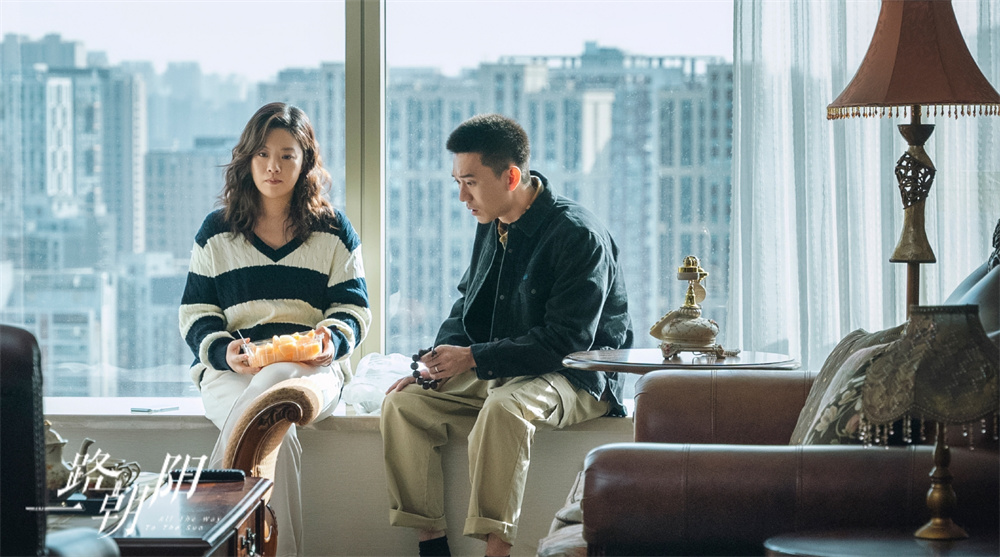
Stills of "All the Way to the Sun"
The Paper : The creation of this story went through three years of the epidemic. In three years, a crazy real estate era has passed. It can be said that the real estate market and people's views on houses have undergone tremendous changes. Have you ever thought that if this work was published before the epidemic, the evaluation it received might be completely different from what it is now?
Lan Xiaoxi : Yes, that's why we always say that a work has a destiny. If we broadcast it during a period when real estate is booming and consumers are crazy, more viewers may say: You have so many houses and you are not happy yet. This is so fake. In the past, as long as you bought a house, you would definitely make money. No matter how much you borrow, you can sell a house and have everything, right? Now, there are indeed examples of people being foreclosed because of too many houses and too many mortgages. Therefore, the audience can understand the plot behind Tian Rong who is tired of the house.
The Paper : In terms of project selection, what kind of experience and standards do you have?
Lan Xiaoxi : Taking adaptation projects as an example, I like projects that are relatively small in size and have a relatively large creative space. And I quite believe in my intuition. If a project or story particularly touches you, you have the desire and enthusiasm to create.
Many people in the market say that screenwriters are now working as "product managers." In fact, I personally feel that it is okay because I don't produce much. You can see that I have been working on "All the Way to the Sun" for four years, so I basically don't have this kind of trouble. And I am also very lucky. The parties I met respected the screenwriters and were very professional.
The Paper : There are differences in the audience and creation of literature and TV dramas. As a screenwriter, how do you understand this "difference"?
Lan Xiaoxi : First of all, the creation of literature and TV dramas certainly have something in common. We all have to write about things that are common in human nature, and write about things that are real and can touch people's hearts. Secondly, I started writing novels. After selling my film and television rights, I started working as a screenwriter for my own novels, and then I embarked on the screenwriting path. It was then that I discovered that the writing methods of novels and scripts are completely different. You can pursue writing style in novels. Pursue psychologically very delicate descriptions, but the script must be straightforward and concise, and there must be a rhythm of succession and transition. Novels can have wild and imaginative scenes, but in scripts, your scenes must be realistic and the director can capture them, and your characters must be empathetic to the actors.
The Paper : The lines in the script need to be life-like, but you have to write lines for dozens or even dozens of characters. How do you screenwriters differentiate their lines?
Lan Xiaoxi : I have never received professional training in script writing. When I first entered the industry, it was easy to write the lines of more than a dozen people as if they were spoken by one person. Since I started writing scripts in 2010, I have been writing non-stop. I write thousands of words every day, and there are many cases where I write them to waste. But it is the training of more than ten years that has allowed me to gradually grow. After a lot of training, you will start to summarize, and you will know who should say what.
For example, Li Guang is a real estate tycoon, so as the spokesperson of Liming Group, his words should be concise and weighty. Of course, during that time, I also read a lot of autobiographies of business tycoons. Li Mujia is a lawyer, so we went to the law firm to interview and observe how the lawyers spoke. Tian Rong is very down-to-earth and feels like a friend around us, so her lines are straightforward and funny. Li Wanbing and his father are from Beijing, and I am from Nanjing. I don’t speak Beijing dialect, so I follow a lot of Beijing bloggers and watch how they speak every day. I learned some Beijing dialects and slangs, which I used for the two of them.
The Paper : So you have to do a lot of observation in your life, and you have to read a lot.
Lan Xiaoxi : Yes, after you have been in this business for a long time, you will have some self-consciousness. For example, whether you go out to buy groceries or spend a birthday with a friend, you will subconsciously observe the people and things around you, and they may become your script in the future. prototype in . When you receive a new project or there is a certain character in the project, you will naturally search in your mind whether there is such a prototype.
In addition, I have been a reporter for 16 years, and this job will also meet many people, which laid a very good foundation for my later work as a screenwriter. At that time, I ran a lot of lines, legal system, current affairs, public opinion supervision, hotel food, and even pulled advertisements. I very clearly remember the different difficulties I encountered in each line, such as being rejected when trying to solicit business, staring at people asking for advertising money, etc. When writing, these experiences will pop up from time to time, and finally enter into my script.
The Paper : Having been a screenwriter for so many years, what attracts you the most?
Lan Xiaoxi : When I was writing, I felt that I was from the perspective of God, creating and guiding the fate of the characters. Also, you can experience and observe different lives, such as interviewing lawyers and real estate agents. I also have a project to be a peacekeeping policeman, so I went to Africa to interview our Chinese peacekeeping policemen. I am very proud of it. In the process , which means that your life has also been broadened.
